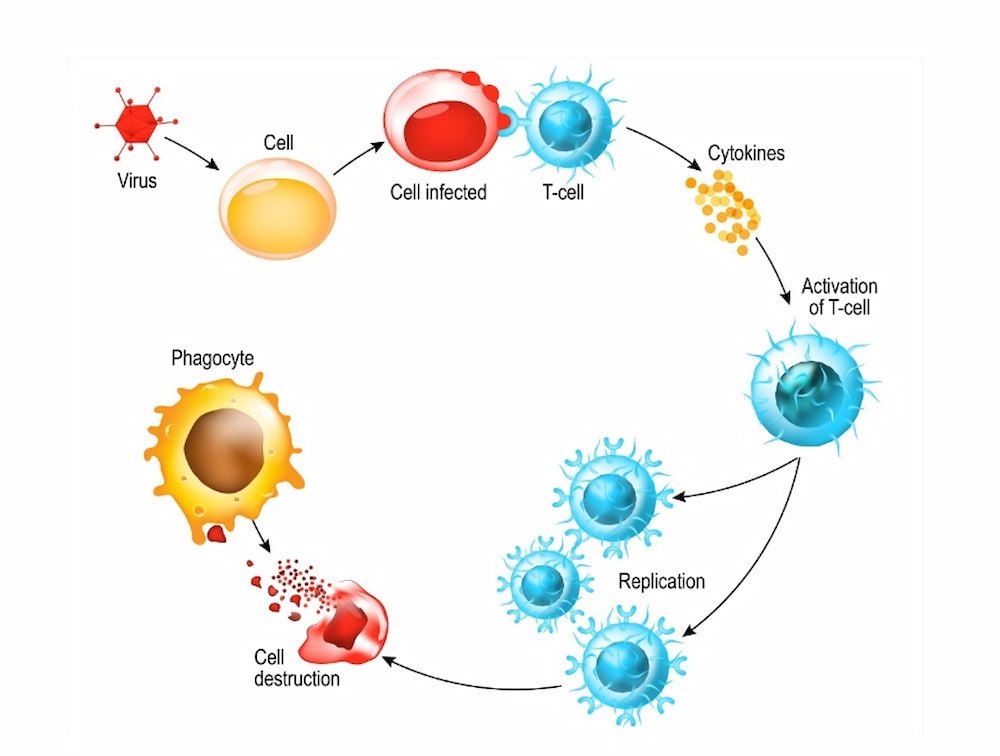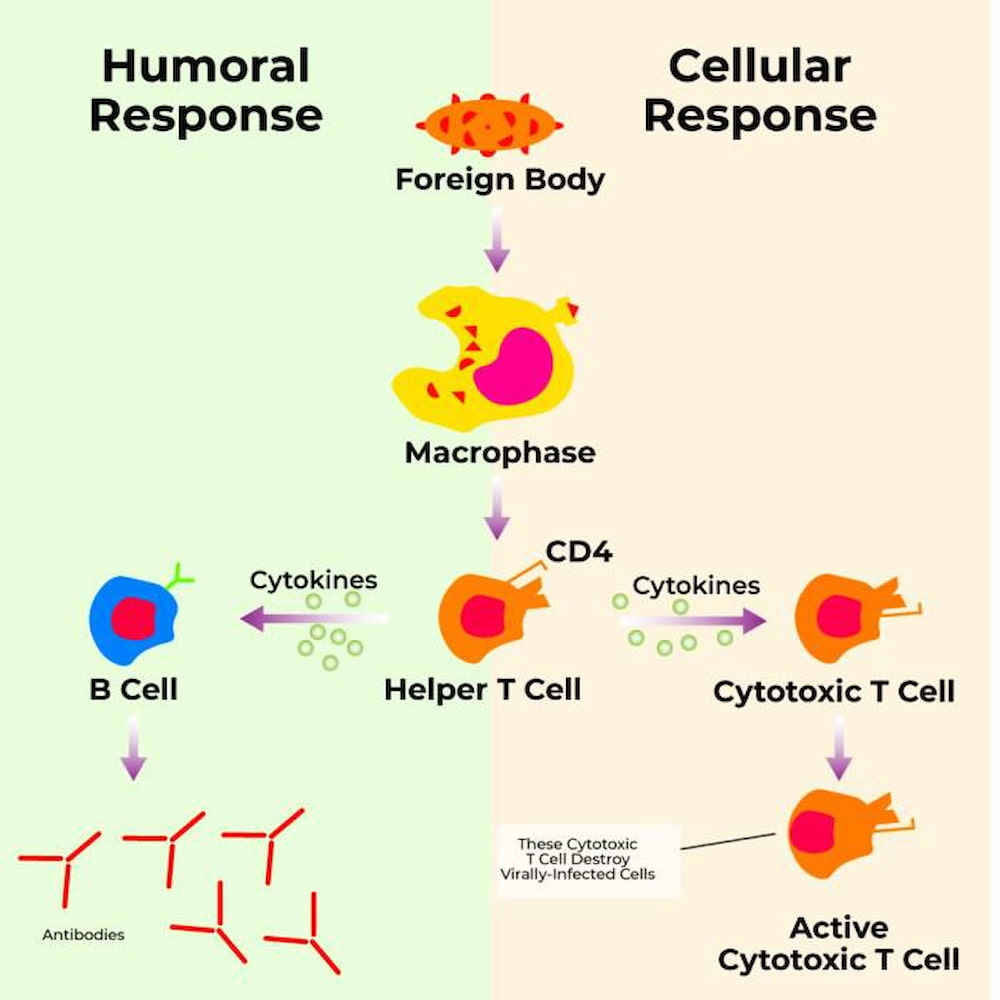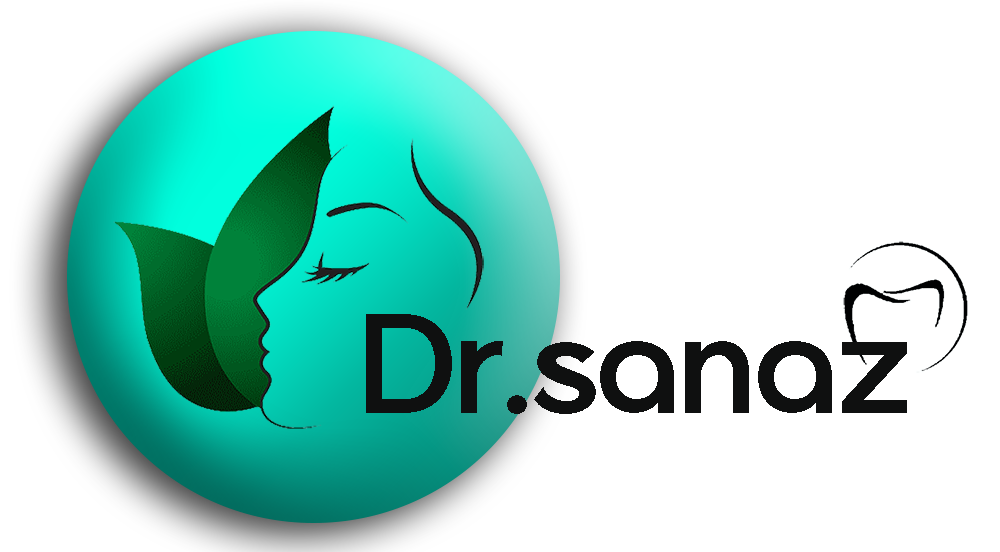

How Adaptive Immune System Works?
Table of Contents
The adaptive immune system is an integral part of the vertebrate immune system. The immune system is a part of the body responsible for identifying the cells and molecules of the body from foreign and destroying or rendering them harmless. This system has both components of cellular immunity and humoral immunity.
The body destroys pathogens and foreign agents with two methods of non-specific defense and the adaptive immune system (specific defense), preventing disease occurrence. The most important feature of the adaptive immune system (as opposed to the innate immune system) is the specific response to the antigen and the creation of immunological memory after exposure, so this system is activated in vaccination.

What is the immune system, and how does it work?
The immune system is a complex network of cells, tissues, and organs that work together to protect the body from infection and other diseases. It helps identify and neutralize foreign substances, such as bacteria, viruses, and toxins, that can enter the body and cause damage.

The main components of the immune system are:
- White blood cells (leukocytes) are specialized cells that defend the body against infection and disease. Different types of white blood cells exist, including neutrophils, monocytes, and lymphocytes. ( you may also be interested in reading the article “WBC Count: A Guide To Understanding Your Results And Next Steps” )
- Lymphatic tissue: This includes the thymus, spleen, lymph nodes, and tonsils, which produce store, and transport white blood cells.
- Antibodies are proteins produced by specific white blood cells that help neutralize foreign substances and mark them for destruction.
- Complement System: This group of proteins works together to break down foreign substances and remove them from the body.
The immune system also includes specialized organs such as the bone marrow, which produces white blood cells, and the tonsils and adenoids, which provide the first line of defense against infection.
The immune system is vital in helping the body fight infection and disease and maintain good health.

What is adaptive immunity?
Acquired immunity, also known as adaptive immunity, is the body’s second line of defense against infections and other harmful substances. It is a specific immune response that occurs after the response of the innate immune system. Acquired immunity occurs after exposure to an antigen, either through vaccination or natural infection.
The immune system “learns” to recognize and respond to specific antigens, and this knowledge is retained in the form of immune memory. This allows the immune system to mount a more efficient and rapid response to future exposures to the same antigen.

How do B cells and T cells work in adaptive immunity?
There are two main types of adaptive immunity: humoral immunity and cellular immunity. Humoral immunity is caused by antibodies produced by B lymphocytes (B cells) that help neutralize pathogens and toxins. Cell-mediated immunity is mediated by T lymphocytes (T cells) and involves directly attacking and killing infected cells.
The adaptive immune system is specific to an antigen that stimulates immune response and provides long-term protection against future exposure to the same antigen. It is essential to the body’s overall defense system and is vital in protecting against infections and other harmful substances.

Adaptive safety features
Adaptive immunity, also known as acquired immunity, is characterized by several key features:
1. Specific: Adaptive immunity is specific to the antigen that stimulates the immune response. This means that the immune system “learns” to recognize and respond to specific antigens, and this knowledge is retained in the form of immune memory. This allows the immune system to mount a more efficient and rapid response to future exposures to the same antigen.
2. Diversity: The immune system can develop many recognition molecules that recognize billions of distinct antigenic structures.
3. Immunological memory: Due to immunological memory, subsequent exposure to the same antigen leads to a faster and more robust immune response. Because of immunological memory, the secondary immune response is faster and stronger than the primary immune response, and there is a lifelong memory against many diseases, including measles.
4. Self/non-self recognition: The adaptive immune system responds typically only to foreign antigens, indicating its capacity for self/non-self recognition. There are two forms of adaptive immunological responses: humoral or antibody-mediated immunity and cell-mediated immunity.

5. Long-lasting protection:
Adaptive immunity protects against future exposure to the same antigen. This contrasts innate immunity, which is non-specific and provides rapid but short-term protection.
6. Immune system activation:
Adaptive immunity involves the activation of the immune system, which leads to the production of antibodies and the development of immune memory. This is in contrast to passive immunity, which involves the transfer of antibodies or immune cells from one person to another and does not activate the immune system.
7. Two main types: There are two main types of adaptive immunity: humoral immunity, which is mediated by antibodies produced by B lymphocytes, and cell-mediated immunity, which is mediated by T lymphocytes.
In general, adaptive immunity is characterized by specificity, long-term protection, activation of the immune system, and the presence of two main types: humoral immunity and cellular immunity.

Types of acquired (adaptive) immunity.
When a pathogen enters the body, acquired immunity can be induced by the host body or by transferring antibodies or lymphocytes to the host body.
1. Active Adaptive Safety
Active adaptive immunity refers to the immune response that occurs when a person is exposed to an antigen through natural infection or vaccination. During active immunity, the immune system “learns” to recognize and respond to antigens, and this knowledge is retained in the form of immune memory. This allows the immune system to mount a more efficient and rapid response to future exposures to the same antigen.
Active immunity can be acquired naturally or artificially. Active natural acquired immunity occurs when a person is exposed to an antigen through a natural infection with a pathogen. Artificially acquired active immunity occurs when a person is intentionally exposed to an antigen through vaccination.
Both types of active immunity involve the activation of the immune system, which leads to the production of antibodies and the development of immune memory. Active immunity provides long-term protection against future exposures to the same antigen.
2. Passive acquired immunity
Passively acquired immunity refers to immune protection induced by transmitting antibodies or immune cells from one person to another. Passive immunity is temporary and does not result in immune memory formation.

There are two main types of passive adaptive immunity:
Passive natural immunity:
Passive natural immunity occurs when a person receives antibodies from the mother through the placenta or breast milk. This type of immunity protects the baby or toddler against certain infections.
Artificial Passive Immunity:
Artificial passive immunity occurs when a person is intentionally given antibodies or immune cells from another person or animal. This can be done by administering immune globulin containing high levels of preformed antibodies or by transferring immune cells such as T lymphocytes. Passive artificial immunity often provides temporary protection against infections or treats certain immune disorders.
Passively acquired immunity is not as long-lasting as active immunity but can provide rapid protection against infections and other harmful substances.
How can vaccination strengthen the adaptive immune system?
Acquired immunity, also known as adaptive immunity, is an essential component of the body’s overall defense system and plays a vital role in protecting against infections and other harmful substances. Some of the key benefits and importance of acquired immunity include:
- Specific: Acquired immunity is specific to the antigen that stimulates the immune response. This means that the immune system “learns” to recognize and respond to specific antigens, and this knowledge is retained in the form of immune memory. This allows the immune system to mount a more efficient and rapid response to future exposures to the same antigen.
- Long-term protection: Acquired immunity protects against future exposure to the same antigen. This contrasts innate immunity, which is non-specific and provides rapid but short-term protection.
- Protection against infections: Acquired immunity is vital in protecting against infections caused by bacteria, viruses, and parasites. It produces antibodies and activates immune cells such as T lymphocytes, which help destroy infected cells and inhibit the growth and proliferation of pathogens.
- Vaccination: Acquired immunity can be induced artificially through vaccination, which involves administering a pathogen’s attenuated or inactive form. It stimulates the immune system to produce antibodies and develop immune memory, protecting against subsequent infections with the same pathogen. Vaccination is an essential public health measure that helps reduce the incidence and spread of infectious diseases.
- ( You may also be interested in reading the article “What Are Whooping Cough’s Early Symptoms” )
In general, acquired immunity is essential to the body’s defense system and plays a vital role in protecting against infections and other harmful substances.

How does the immune system function؟
How does the adaptive immune system remember past infections?
The cellular immune mechanism fights against cells infected with viruses and bacteria, and cancer cells ( In this context, reading the article “The Best Guideline For The Type Of Skin Cancer ” will be very valuable.) . In this method, T lymphocytes play the primary role. After binding with a specific antigen, these cells multiply and give rise to different types of T cells:
Killer (or cytotoxic) T cells can identify and directly attack an infected or cancerous cell. They create pores in these cells by secreting a protein called perforin, which leads to their death.
- Helper T cells: It is the most abundant type of T lymphocytes that help the immune system. These cells are the target of HIV.
- Attenuator T cells: These cells control the actions of killer and helper T cells, terminating the immune response and preventing overactive responses.
- Memory T cells: These cells remain in the body in a standby state, And they transfer the method of fighting the virus to the next generations.

Conclusion
We are all born with some degree of immunity from invaders. The human immune system, like most animals, will attack foreign invaders from day one. This innate immunity includes our body’s external barriers—the first line of defense against pathogens—such as the skin and mucous membranes of the throat and intestines. This answer is more general and non-specific. Adaptive or acquired immunity enters the body if the pathogen manages to evade the innate immune system.
This protection from pathogens develops as we go through life. As we are exposed to diseases or vaccinated, we build up a library of antibodies to different pathogens. It is sometimes known as immunological memory because our immune system remembers previous enemies.


